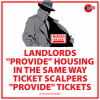Turn the Page
DIS Veteran
- Joined
- Jan 23, 2013
I suppose I don't have anything as crazy as these stories to report but we bought our home 6 years ago and our zillow zestimate is now nearly double what we paid for it. I don't know how accurate that is but we haven't looked at all since we certainly aren't moving anywhere.
DH made a few comments last year that given how housing prices are if we were in a different situation he might consider putting it on the market. I don't know what situation he was talking about because housing is nuts everywhere and we have to live somehwere. I guess maybe if we were ready to downsize or something?
The craziest thing I can think of is my mother recently bought a 700 square foot condo for $194,000 and $425 a month in monthly dues. That is totally insane. And no, it is cute but it certainly isn't upscale in any way. Even the realtor tried to talk her out of it claiming the dues were too high but she insisted. Whatever. Not my monkey not my circus.
DH made a few comments last year that given how housing prices are if we were in a different situation he might consider putting it on the market. I don't know what situation he was talking about because housing is nuts everywhere and we have to live somehwere. I guess maybe if we were ready to downsize or something?
The craziest thing I can think of is my mother recently bought a 700 square foot condo for $194,000 and $425 a month in monthly dues. That is totally insane. And no, it is cute but it certainly isn't upscale in any way. Even the realtor tried to talk her out of it claiming the dues were too high but she insisted. Whatever. Not my monkey not my circus.




